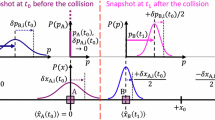Abstract
MY reply to my friend Mr. Hugh Elliot is quite plainly that, so far as I can discover from his letter in NATURE of December 1, and from his book, and from an article I have read of his, and from an essay which I believe nearly won the five-thousand-dollar prize, he has not understood the principle of relativity. He discusses with very great ability and lucidity the negative results of the experiments and all the illustrations of conflicting experience in relatively moving systems of reference, and, for aught I know, he may be quite familiar wTith the differential equations which the relativist mathematicians use, but all that he does is to offer a plausible explanation of the phenomena on his materialistic hypothesis. That is not the principle of relativity, yet, strangely enough, he seems quite convinced that it is. The principle of relativity is essentially the construction of the universe from pure concrete experience without any causal theory of experience whatever. This is the very antithesis of materialism. To affirm the contrary is like saying that Berkeley is a materialist. It is simply evidence that words are being used without knowing their meaning.
This is a preview of subscription content, access via your institution
Access options
Subscribe to this journal
Receive 51 print issues and online access
$199.00 per year
only $3.90 per issue
Buy this article
- Purchase on SpringerLink
- Instant access to full article PDF
Prices may be subject to local taxes which are calculated during checkout
Similar content being viewed by others
Author information
Authors and Affiliations
Rights and permissions
About this article
Cite this article
CARR, H. Relativity and Materialism. Nature 108, 467 (1921). https://doi.org/10.1038/108467a0
Published:
Issue date:
DOI: https://doi.org/10.1038/108467a0



